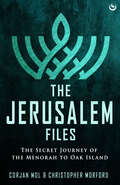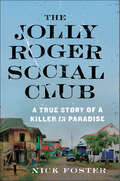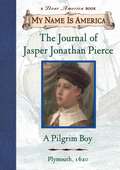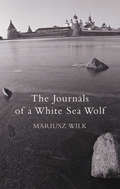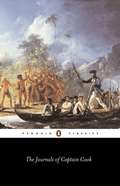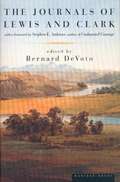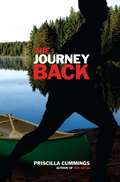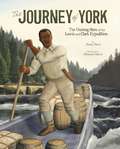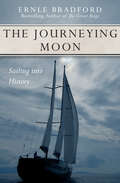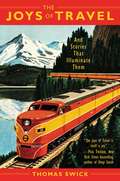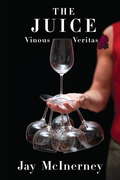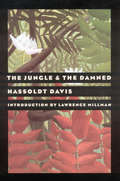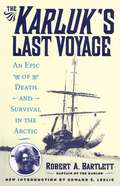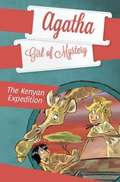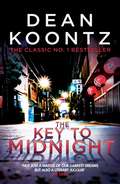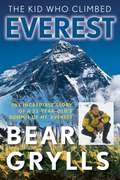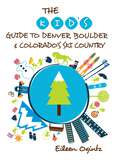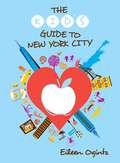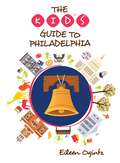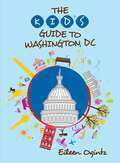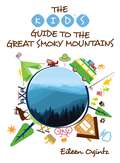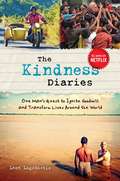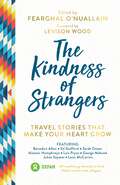- Table View
- List View
The Jerusalem Files: The Secret Journey of the Menorah to Oak Island
by Corjan Mol Christopher MorfordA non-fiction Da Vinci Code for the 21st century, this thrilling treasure hunt traces the voyage of the legendary Jewish Menorah from the Jerusalem of the Knights Templar through France, Portugal and North America, providing mind-blowing history and mystery for fans of The Curse of Oak Island.The Jewish Menorah is one of the world&’s most sacred artefacts, a man-size lampstand with seven arms, made from a single block of gold, that is an iconic symbol for the Jewish people. King Solomon placed it in the inner sanctum of the Temple of Jerusalem, but by the 5th century AD, all trace of it had disappeared from the official record, and it was assumed lost.Two historical researchers, Corjan Mol and Christopher Morford, now reveal the astounding secret of what happened to the Menorah. Through their meticulous research as well as a jaw-dropping stroke of luck, Mol and Morford discovered that the Menorah was dug up from the Temple Mount in Jerusalem in the time of the Crusades by the Knights Templar and smuggled to France with the help of the French King Louis IX. From there it was taken to Portugal, to end up in North America after interventions by Thomas Jefferson, Benjamin Franklin and George Washington. The secret was hidden in plain sight in both France and North America, on a scale so big that it took 800 years for it to be discovered.
The Jolly Roger Social Club: A True Story of a Killer in Paradise
by Nick FosterThe true story of a series of bold killings which took place in a shadowy American ex-pat community in Panama--a tale of greed, political history, and murderIn the remote Bocas del Toro, Panama, William Dathan Holbert, aka "Wild Bill," is awaiting trial for the murder of five fellow American ex-patriots. Holbert's first victims were the Brown family, who lived on a remote island in the area's Darklands. There, Holbert turned their home into the "Jolly Roger Social Club," using drink- and drug-fueled parties to get to know other ex-pats. The club's tagline was: "Over 90% of our members survive." Those odds were not in his victims' favor. The Jolly Roger Social Club is not just a book about what Holbert did and the complex financial and real estate motives behind the killings; it is about why Bocas del Toro turned out to be his perfect hunting ground, and why the community tolerated-even accepted-him for a time. Told through the fascinating history of the country of Panama, a paradise with sinister ties to the political and economic interests of the United States, journalist Nick Foster brings this uniquely bizarre place to life; shedding light on a community where many live under assumed names, desperate to leave their old lives behind-and sometimes people just disappear.
The Journal of Jasper Jonathan Pierce: A PIlgrim boy, Plymouth, 1620 (My Name is America)
by Ann RinaldiThis book is historical fiction. Many of the characters did exist. The story is of a 14 year old boy Jasper Jonathan Pierce and his voyage on the Mayflower. After arriving at Plymouth, Jasper has many adventures. The book is well done, and accurate in most details.
The Journals Of A White Sea Wolf
by Mariusz WilkIn 1991 Mariusz Wilk, a Polish journalist long fascinated by the mysteries of the Russian soul, decided to take up residence in the Solovki islands, a lonely archipelago lost amid the far northern reaches of Russia's White Sea. For Wilk these islands represented the quintessence of Russia: a place of exile and a microcosm of the crumbling Soviet empire. On the one hand, they were a cradle of the Orthodox faith and home to an important monastery; on the other, it was here that the first experimental gulag was built after the 1917 revolution. Over the course of years Wilk came to know every single one of the islands' 1000 or so residents. From his remote home, from which he sent regular despatches to the Paris-based Polish newspaper Kultura, he attempted to observe and come to terms with the complexities and contradictions of Russian history, its glorious past and the cruelty of Soviet Communism. In the process, he has written a most unusual travel book, a beautifully descriptive work that belongs in the best tradition of writers such as Norman Lewis, Patrick Leigh Fermor and Claudio Magris.
The Journals of Captain Cook: A Literal Transcription Of The Original Mss
by Captain James CookCook led three famous expeditions to the Pacific Ocean between 1768 and 1779. In voyages that ranged from the Antarctic circle to the Arctic Sea, Cook charted Australia and the whole coast of New Zealand, and brought back detailed descriptions of the natural history of the Pacific. Accounts based on Cook's journals were issued at the time, but it was not until this century that the original journals were published in Beaglehole's definitive edition. The JOURNALS tells the story of these voyages as Cook wanted it to be told, radiating the ambition, courage and skill which enabled him to carry out an unrivalled series of expeditions in dangerous waters.
The Journals of Lewis and Clark
by Bernard Devoto Meriwether LewisHere is your chance to travel with the great explorers Captains Meriwether Lewis & William Clark. Live experiences with them through their own words (misspellings and all) written with quill pens.
The Journey Back
by Priscilla CummingsEscaped and on the run, can Digger find redemption? His bold escape from a juvenile detention facility nearly kills him, but soon an angry fourteen-year-old Digger is on the run, hijacking a tractor trailer, "borrowing" a bicycle, and stealing a canoe. When injuries stop him, Digger hides at a riverside campground, where he befriends a young boy and a girl his own age. New friends, a job caring for rescued horses, and risking his life to save another make Digger realize that the journey back is not just about getting home, it's about discovering what he's really running from, and how to come to terms with his troubled past.
The Journey of York: The Unsung Hero Of The Lewis And Clark Expedition (Encounter: Narrative Nonfiction Picture Books Series)
by Hasan Davis Alleanna HarrisThomas Jefferson's Corps of Discovery included Captains Lewis and Clark and a crew of 28 men to chart a route from St. Louis to the Pacific Ocean. All the crew but one volunteered for the mission. York, the enslaved man taken on the journey, did not choose to go. Slaves did not have choices. York's contributions to the expedition, however, were invaluable. The captains came to rely on York's judgement, determination, and peacemaking role with the American Indian nations they encountered. But as York's independence and status rose on the journey, the question remained what status he would carry once the expedition was over. This is his story.
The Journey: Japanese Americans, Racism, and Renewal
by Sheila HamanakaText and photographed details of a mural depict the history of the Japanese people in America.
The Journeying Moon: Sailing into History
by Ernle BradfordA memoir of life as an adventurer and sailor in the Mediterranean, by the noted naval historian. Ernle Bradford spent his twenty-first birthday in Egypt, serving in the Royal Navy during World War II. It was there that he came across the profoundly affecting words of Anton Chekhov: &“Life does not come again; if you have not lived during the days that were given to you, once only, then write it down as lost.&” After the war, Bradford married and settled in London, but the mandate of those words inspired him and his wife to quit their jobs, sell their home, and sail to France in their small ship Mother Goose. The Journeying Moon chronicles their adventures as they travel through Europe and the Mediterranean. From the people of Malta who believed Bradford was a spy from MI5, to his interactions with the Sicilian Mafia, Bradford tells the charming and vivid tale of his days as a true adventurer.
The Joys of Travel: And Stories That Illuminate Them
by Thomas SwickThe Joys of Travel: And Stories that Illuminate Them is a collection of Thomas Swick’s personal essays on what he has identified as "the seven joys of travel”: anticipation, movement, break from routine, novelty, discovery, emotional connection and heightened appreciation of home.The Joys of Travel awakens readers to pleasures that, as travelers, they may be taking for granted. It also shows non-travelers what they’ve been missing. It offers tips on how people can get the most out of their trips, as well as the titles of travel classics that will not only prepare them for the places they visit but make those places more meaningful once they get there. And it tells, through memories and stories, the tale of someone who has made a living writing about travel. In fact, the story of Thomas Swick’s life as a traveler neatly parallels the examination of a journey from beginning to end.Before you next trip, be it a family vacation or a backpacking tour of Europe, read The Joys of Travel. It will inspire you to get the most out of your time away from home and to get away more often.
The Juice: Vinous Veritas
by Jay McinerneyThis new collection by the acclaimed novelist--and, according to Salon, "the best wine writer in America"--is generous and far-reaching, deeply knowledgeable and often hilarious. For more than a decade, Jay McInerney's vinous essays, now featured in The Wall Street Journal, have been praised by restaurateurs ("Filled with small courses and surprising and exotic flavors, educational and delicious at the same time" --Mario Batali), by esteemed critics ("Brilliant, witty, comical, and often shamelessly candid and provocative" --Robert M. Parker Jr.), and by the media ("His wine judgments are sound, his anecdotes witty, and his literary references impeccable" --The New York Times). Here McInerney provides a master class in the almost infinite varieties of wine and the people and places that produce it all the world over, from the historic past to the often confusing present. From such legendary châteaus as Margaux and Latour and Palmer to Australia and New Zealand and South Africa, to new contenders in Santa Rita Hills and Paso Robles, we learn about terroir and biodynamic viticulture, what Champagnes are affordable (or decidedly not), even what to drink over thirty-seven courses at Ferran Adrià's El Bulli--in all, an array of grapes and wine styles that is comprehensive and thirst inducing. And conspicuous throughout is McInerney's trademark flair and expertise, which in 2006 prompted the James Beard Foundation to grant him the MFK Fisher Distinguished Writing Award.
The Jungle and the Damned
by Lawrence Millman Hassoldt DavisHassoldt Davis (1907–1959) was an adventurer and travel writer whose work Ernest Hemingway once described as “fantastic . . . magnificent.” With his intrepid new wife, filmmaker Ruth Staudinger, Davis sets off on an improbable honeymoon, first to Devil’s Island, and then down an unexplored river in the interior of French Guiana. The result is a swashbuckling saga that deserves a place on any adventure bookshelf.
The Karluk's Last Voyage: An Epic of Death and Survival in the Arctic
by Robert A. Bartlett&“We did not all come back.&” Thus begins the rare firsthand account of the extraordinary ordeal of the Karluk, the flagship of explorer Vilhjalmar Stefansson&’s Arctic expedition of 1913-1916. When ice trapped the Karluk, Stefansson abandoned Captain Robert A. Bartlett and the crew—eleven of whom perished—to their fate.When the ice crushed the Karluk and sank her, Bartlett led the shipwrecked survivors safely to Wrangell Island. From there, with one Inuit companion, he journeyed across 700 miles of frozen seas and Siberian wilderness to return with rescuers. It is a feat that rivals Shackleton&’s own celebrated efforts to seek for the crew of the Endurance.
The Kenyan Expedition #8
by Maya Gold Stefano Turconi Steve Stevenson"With the smarts of Nancy Drew and the charm of Eloise, Agatha is an exciting addition to the girl-detective canon." --School Library JournalA rare species of white giraffe, worshipped by the Masai tribe, has disappeared from the savannah. So Agatha and her cousin Dash head to Africa on their next adventure to help solve the mystery. There, they join forces with a third cousin--a safari expert--to track down the poacher who has stolen the priceless animal.
The Key to Midnight: A gripping thriller of heart-stopping suspense
by Dean KoontzThe past can be a very dangerous place when it is locked into a nightmare... The Key to Midnight is a page-turning thriller from Dean Koontz that delves into the darkest of dreams. Perfect for fans of Stephen King and Harlan Coben. 'Dean Koontz writes page-turners, middle-of-the-night-sneak-up-behind-you suspense thrillers. He touches our hearts and tingles our spines' - Washington Post Book WorldWho is Joanna Rand?Alex Hunter hasn't come to Japan to fall in love. But Joanna Rand is the most beautiful, exciting woman he has ever met.But Joanna is not who she thinks she is. Ten years before, and halfway across the world, a brutally bizarre experiment recreated her mind. A violation so hideous that her dreams are filled with terror and her memories are a lie.If they are ever to be free, Alex and Joanna have to reopen the dangerous door into the nightmare past. Somehow they have to find the key to midnight... What readers are saying about The Key to Midnight: 'This is a story of suspense, action and intrigue set to the backdrop of international espionage... Koontz delivers his usual blend of mystery and action that keeps those pages turning''This is an intriguing tale, a mystery and a romance but shot through with an underlying psychological horror and also a political undertone, too''As always, so, so readable, and so, so well written'
The Kid Who Climbed Everest: The Incredible Story Of A 23-Year-Old's Summit Of Mt. Everest
by Bear GryllsIn 1996, a twenty-three-year-old soldier in the British Army was flying over an African desert on a routine parachute jump. He had a lot to look forward to-a long career ahead of him in the army, a beautiful girlfriend back home. But those dreams were cut short when his parachute failed to open at eleven thousand feet. He had cracked three vertebrae and come within a fraction of severing his spinal cord. A grueling eight months of physical therapy followed. Bear had to retrain his muscles to do all of the things we take for granted-how to sit, stand, walk, even breathe. Eighteen months after his accident he overcame incredible odds to reach the peak of Everest. THE KID WHO CLIMBED EVEREST is a tale of courage and determination. Bear's quest for funding for his expedition, his seventy days on Everest's southeast face, and a narrow brush with death after a fall into a crevasse at nineteen thousand feet, make the story an essential read for anyone who's ever had a dream and made it come true.
The Kid's Guide to Acadia National Park (Kid's Guides Series)
by Eileen OgintzBefore you plan your family&’s next vacation to Maine's Acadia National Park, get some help from a travel professional… and your kids! The Kid&’s Guide to Acadia National Park lets the kids help plan your trip and guides you as you explore one of America's most popular national parks. Inside you&’ll find kid-tested tips on where to go, where to eat, what to see, and what to do in the park. Along the way, your kids will be engaged by reading and sharing fun facts and cool travel tips. Awesome games and quizzes will keep the family entertained, too. Fun for both visiting and local kids.
The Kid's Guide to Denver, Boulder & Colorado's Ski Country (Kid's Guides Series)
by Eileen OgintzBefore you plan your family’s next excursion, get some help from a travel professional… and your kids! Kid’s Guide to Denver & Boulder lets the kids help plan the trip and guides you as you explore these Colorado destinations. Inside you’ll find kid-tested tips on where to go, where to eat, what to see, and where to get the best souvenirs. Along the way, your kids will be engaged by reading and sharing fun facts and cool travel tips. Awesome games and quizzes will keep the family entertained. Fun for both visiting and local kids.
The Kid's Guide to New York City (Kid's Guides Series)
by Eileen OgintzBefore you plan your family&’s next Big Apple excursion, get some help from a professional . . . and from your kids! The Kid&’s Guide to New York City lets the kids help plan the trip and guides you as you explore the city, neighborhood by neighborhood. Inside you&’ll find kid-tested tips on where to go, where to eat, what to see, and where to get the best souvenirs. Along the way the kids will be engaged by sharing fun New York facts and cool tips. Awesome games will keep everyone busy as you crisscross the city on foot, by subway or bus, or in a cab.
The Kid's Guide to Philadelphia (Kid's Guides Series)
by Eileen OgintzBefore you plan your family&’s next excursion, get some help from a professional . . . and from your kids! The Kid&’s Guide to Philadelphia lets the kids help plan the trip and guide you as you explore the City of Brotherly Love. Inside you&’ll find kid-tested tips on where to go, where to eat, what to see, and where to get the best souvenirs. Along the way the kids are engaged by sharing fun facts and cool tips plus awesome games keep everyone busy! Fun kid-friendly format filled with information, activities and illustrations appealing to the traveling family member in the 6-12 age range.Designed specifically for kids!Small, portable, and easy-to-use with hundreds of ideas to keep kids entertained Designed for both local families and vacationers with children
The Kid's Guide to Washington, DC (Kid's Guides Series)
by Eileen OgintzBefore you plan your family&’s next excursion in the nation&’s capital, get some help from a professional… and your kids! The Kid&’s Guide to Washington, DC lets the kids help plan the trip and guides you as you explore the city. Along the way, your kids will be engaged by reading and sharing fun DC facts and cool travel tips. Awesome games and quizzes—like a scavenger hunt at the National Zoo— will keep the whole family entertained.
The Kid's Guide to the Great Smoky Mountains
by Eileen OgintzBefore you plan your family&’s next excursion to the Great Smoky Mountains, get some help from a professional . . . and from your kids! The book lets the kids help plan the trip and guides you as you explore the this beautiful National Park. Inside you&’ll find kid-tested tips on where to go, where to eat, what to see plus information on wildlife, history, activities, sports, and more. Awesome games keep everyone busy when traveling or in between activities.
The Kindness Diaries
by Leon LogothesisFollow the inspirational journey of a former stockbroker who leaves his unfulfilling desk job in search of a meaningful life. He sets out from Los Angeles on a vintage motorbike, determined to circumnavigate the globe surviving only on the kindness of strangers. Incredibly, he makes his way across the U.S., through Europe, India, Cambodia, and Vietnam, and finally to Canada and back to the Hollywood sign, by asking strangers for shelter, food, and gas. Again and again, he's won over by the generosity of humanity, from the homeless man who shares his blanket to the poor farmer who helps him with his broken down bike, and the HIV-positive mother who takes him in and feeds him. At each stop, he finds a way to give back to these unsuspecting Good Samaritans in life-changing ways, by rebuilding their homes, paying for their schooling, and leaving behind gifts big and small. The Kindness Diaries will introduce you to a world of adventure, renew your faith in the bonds that connect people, and inspire you to accept and generate kindness in your own life.
The Kindness of Strangers: Travel Stories That Make Your Heart Grow
by Ed Stafford Levison Wood Lois Pryce Sarah Outen Jamie McDonald Benedict Allen George Mahood Al Humphreys Anna McNuff Fearghal O'NuallainTravel is the only thing you can buy that makes you richerTravel opens our minds to the world; it helps us to embrace risk and uncertainty, overcome challenges and understand the people we meet and the places we visit. But what happens when we arrive home? How do our experiences shape us?The Kindness of Strangers explores what it means to be vulnerable and to be helped by someone we've never met before. Someone who could have walked past, but chose not to.This is a collection of stories by accomplished travellers and adventurous souls like Sarah Outen, Benedict Allen, Ed Stafford and Al Humphreys, who have completed daring journeys through challenging terrain, adventuring from the Calais Jungle to the Amazon, from Land’s End to the Gobi Desert, from New Guinea to Iran and many other places in between. Each has a story to tell of a time when they were vulnerable, when they were in need and a kind stranger came to their rescue.These are stories that make our hearts grow, stories that will restore our faith in the world and remind us that, despite what the media says, the world isn't a scary place – rather, it is filled with Kind Strangers just like us.All royalties go directly to fund Oxfam’s work with refugees.
